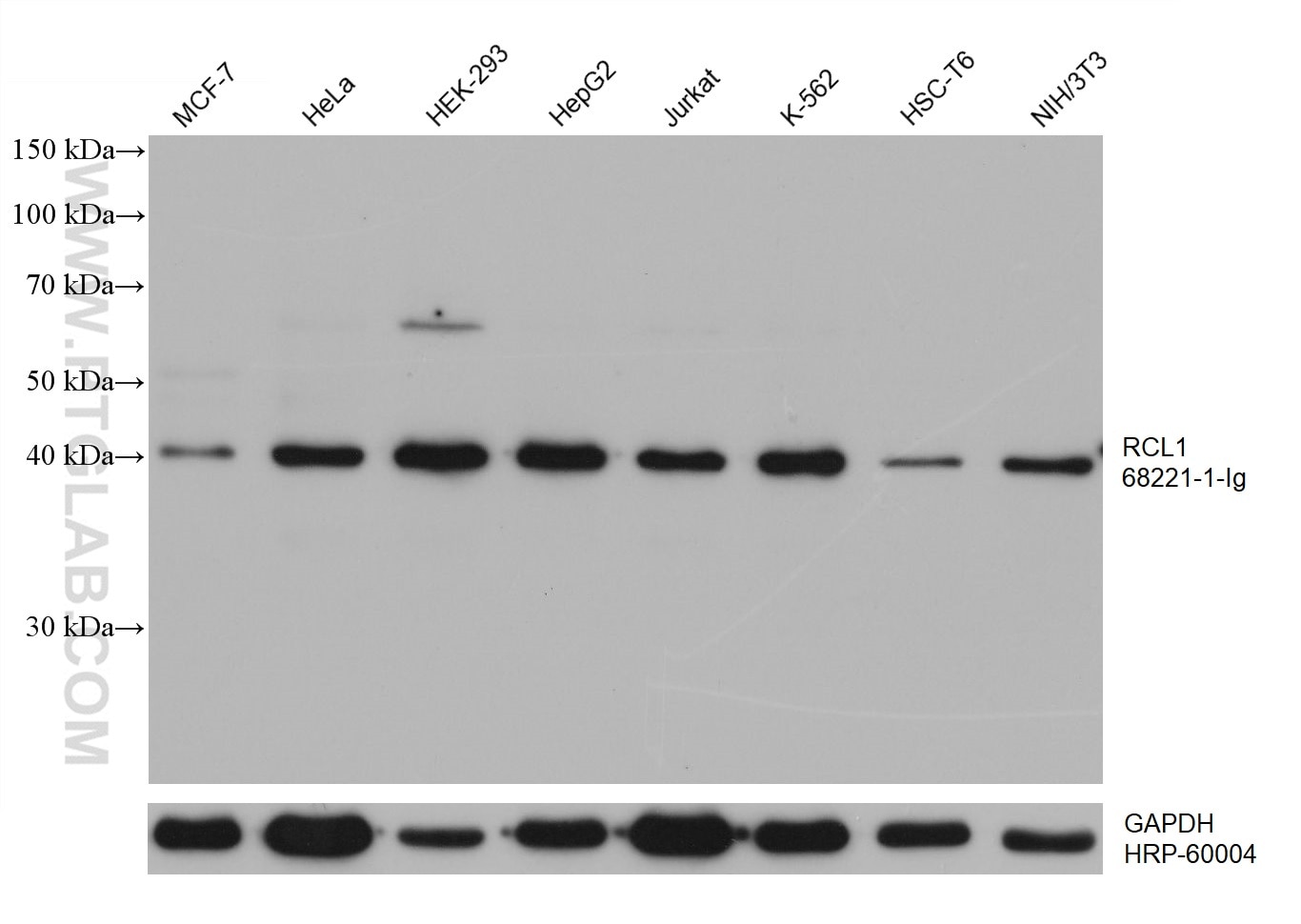Tested Applications
| Positive WB detected in | MCF-7 cells, HeLa cells, HEK-293 cells, HepG2 cells, Jurkat cells, K-562 cells, HSC-T6 cells, NIH/3T3 cells |
Recommended dilution
| Application | Dilution |
|---|---|
| Western Blot (WB) | WB : 1:5000-1:50000 |
| It is recommended that this reagent should be titrated in each testing system to obtain optimal results. | |
| Sample-dependent, Check data in validation data gallery. | |
Product Information
68221-1-Ig targets RCL1 in WB, ELISA applications and shows reactivity with Human, Mouse, Rat samples.
| Tested Reactivity | Human, Mouse, Rat |
| Host / Isotype | Mouse / IgG1 |
| Class | Monoclonal |
| Type | Antibody |
| Immunogen | RCL1 fusion protein Ag7058 Predict reactive species |
| Full Name | RNA terminal phosphate cyclase-like 1 |
| Calculated Molecular Weight | 41 kDa |
| Observed Molecular Weight | 41 kDa |
| GenBank Accession Number | BC001025 |
| Gene Symbol | RCL1 |
| Gene ID (NCBI) | 10171 |
| RRID | AB_2935309 |
| Conjugate | Unconjugated |
| Form | Liquid |
| Purification Method | Protein G purification |
| UNIPROT ID | Q9Y2P8 |
| Storage Buffer | PBS with 0.02% sodium azide and 50% glycerol , pH 7.3 |
| Storage Conditions | Store at -20°C. Stable for one year after shipment. Aliquoting is unnecessary for -20oC storage. 20ul sizes contain 0.1% BSA. |
Background Information
RNA 3'-terminal phosphate cyclase-like protein (RCL1) does not have cyclase activity. It plays a role in 40S-ribosomal-subunit biogenesis in the early pre-rRNA processing steps at sites A0, A1 and A2 that are required for proper maturation of the 18S RNA. RCL1 has two isoforms with the molecular weight of 41 kDa and 20 kDa.
Protocols
| Product Specific Protocols | |
|---|---|
| WB protocol for RCL1 antibody 68221-1-Ig | Download protocol |
| Standard Protocols | |
|---|---|
| Click here to view our Standard Protocols |



